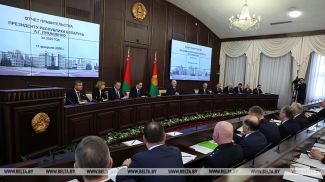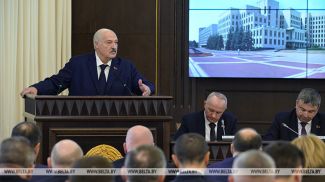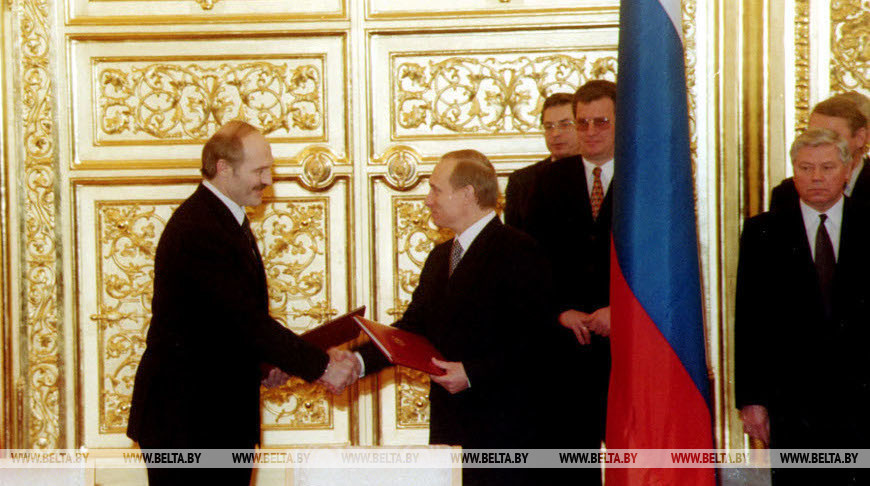
MINSK, 30 June (BelTA) - “There is no politics here. This is a basis for further economic and spiritual development of the two countries and peoples,” the Belarusian leader said in his 2000 New Year address as he talked about the union with Russia. Time has shown that he was right. Indeed things were not always smooth in the relations between Minsk and Moscow. But almost a quarter of a century later, the Union State still remains the basis for the development of our countries. To learn more about the important events in Belarus in 2000, please watch the latest episode of BelTA's YouTube project "How it Was".
In the same address, Lukashenko called the union with Russia a historical necessity. In the 2001 New Year address he stressed: “With all the disputes and diversity of opinions, one thing is indisputable today - the sovereignty of Belarus. No matter what some irresponsible politicians say today, we are not going to sell our sovereignty to either the West or the East. Those who say so are focused on next elections. Meanwhile we are focused on next generations."
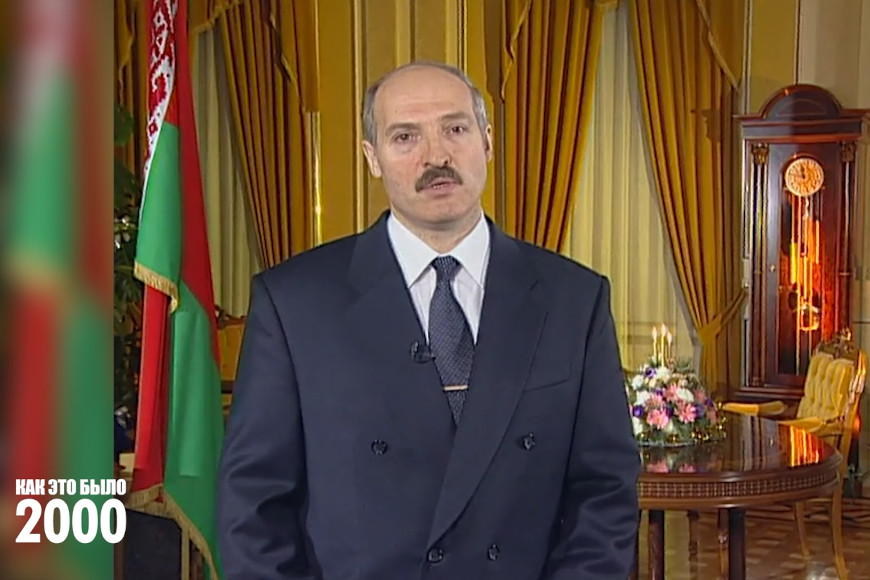
While the Belarusians were listening to Aleksandr Lukashenko’s New Year address, in which the head of state spoke about foreign policy, relations with neighbors and sovereignty, his Russian counterpart made an unexpected statement. In the first minutes of 2000, Boris Yeltsin announced he was stepping down. The relationship between Lukashenko and Yeltsin had their ups and downs. But it was in cooperation with the then president of Russia that the Belarusian leader did everything to ensure that our countries enter the new era shoulder to shoulder.
The result of joint work was the Union State Treaty which came into force in January 2000. There were also opponents of the union of our countries. The signing of the treaty was used by the so-called opposition to take its supporters to the streets for "Freedom Marches". They offered no proposals for solving the existing problems in the state. Only loud slogans along the lines "Lukashenko will go away and we will live like in Europe".
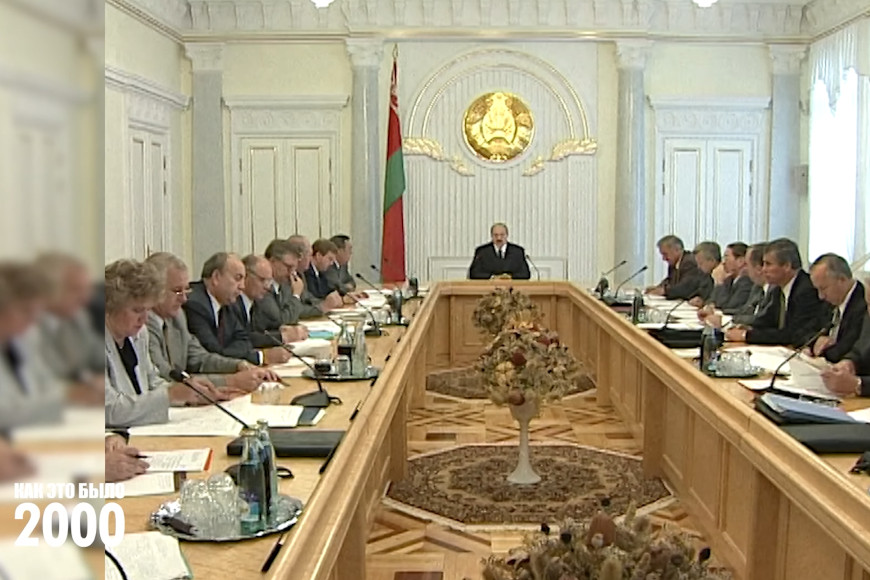
But there were some big decisions to make. The first day of the new year was remembered for the re-denomination of the Belarusian ruble. The government needed to stabilize the national currency. And it succeeded. By the way, already back then the president called for keeping prices in check. “I don’t demand that you put a cap on prices and thereby send the economy into a tailspin. But I have grounds to believe that a quarter of this increase was preventable. Had we had a well-functioning manufacturing sector, the situation would have been different. It was your mismanagement and inefficiency that drove prices skyward,” said Aleksandr Lukashenko.
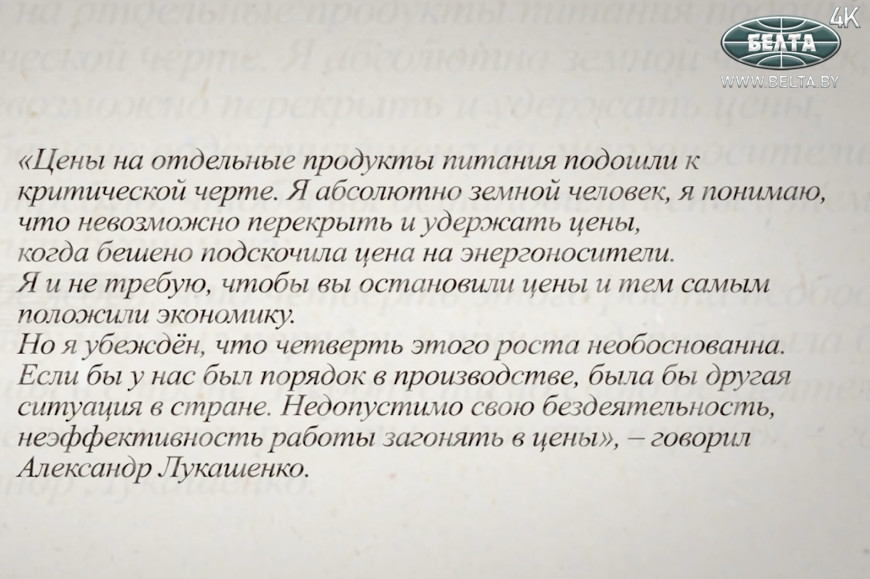
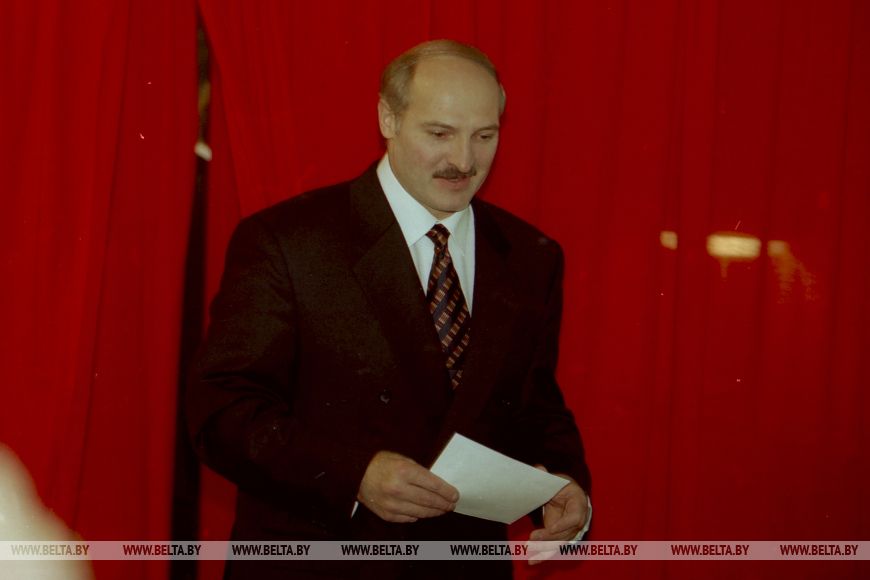
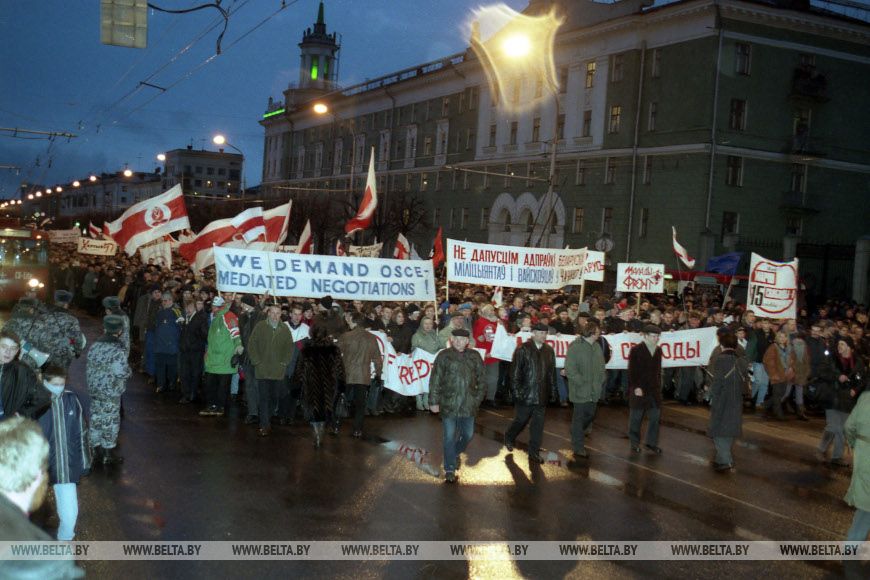
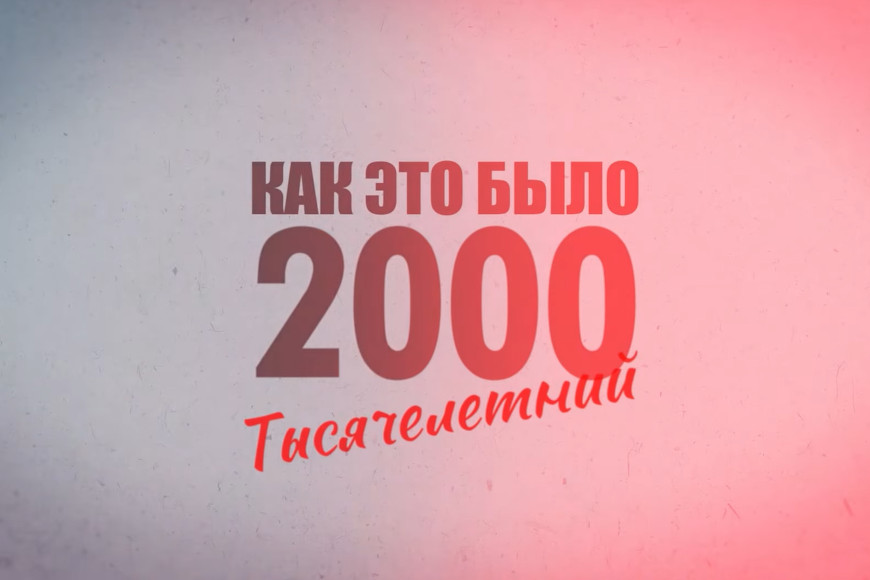

While the Belarusians were listening to Aleksandr Lukashenko’s New Year address, in which the head of state spoke about foreign policy, relations with neighbors and sovereignty, his Russian counterpart made an unexpected statement. In the first minutes of 2000, Boris Yeltsin announced he was stepping down. The relationship between Lukashenko and Yeltsin had their ups and downs. But it was in cooperation with the then president of Russia that the Belarusian leader did everything to ensure that our countries enter the new era shoulder to shoulder.
The result of joint work was the Union State Treaty which came into force in January 2000. There were also opponents of the union of our countries. The signing of the treaty was used by the so-called opposition to take its supporters to the streets for "Freedom Marches". They offered no proposals for solving the existing problems in the state. Only loud slogans along the lines "Lukashenko will go away and we will live like in Europe".

But there were some big decisions to make. The first day of the new year was remembered for the re-denomination of the Belarusian ruble. The government needed to stabilize the national currency. And it succeeded. By the way, already back then the president called for keeping prices in check. “I don’t demand that you put a cap on prices and thereby send the economy into a tailspin. But I have grounds to believe that a quarter of this increase was preventable. Had we had a well-functioning manufacturing sector, the situation would have been different. It was your mismanagement and inefficiency that drove prices skyward,” said Aleksandr Lukashenko.

Later on, the elections to the House of Representatives of the National Assembly were held. The electoral campaign was used by the opposition as another opportunity to “march”, and by various kinds of “democratic” institutions in the West to reproach our country for the absence of this very democracy. However, over the decades of our independence, we have got used to these criticisms.


In the international arena, Aleksandr Lukashenko continued to advocate for peace and development. Speaking at the UN Millennium Summit, the Belarusian leader criticized the NATO bloc for its military operation in Yugoslavia. The president used some strong language to remind the UN that its main function is to build a fair world order. He called out those who were trying to instrumentalize the UN to achieve their goals.
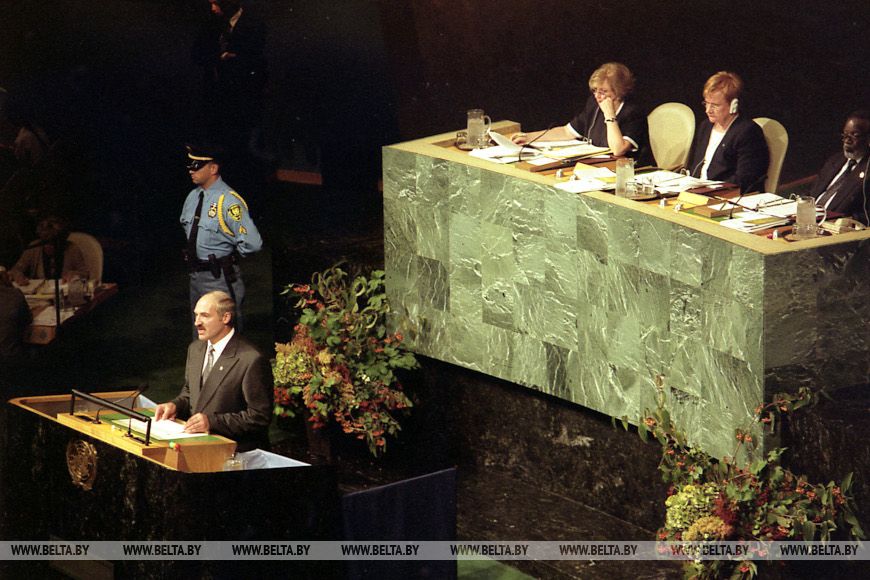
We recount these and other highlights of the year 2000 in the new episode of our YouTube project “How it Was.”

We recount these and other highlights of the year 2000 in the new episode of our YouTube project “How it Was.”





